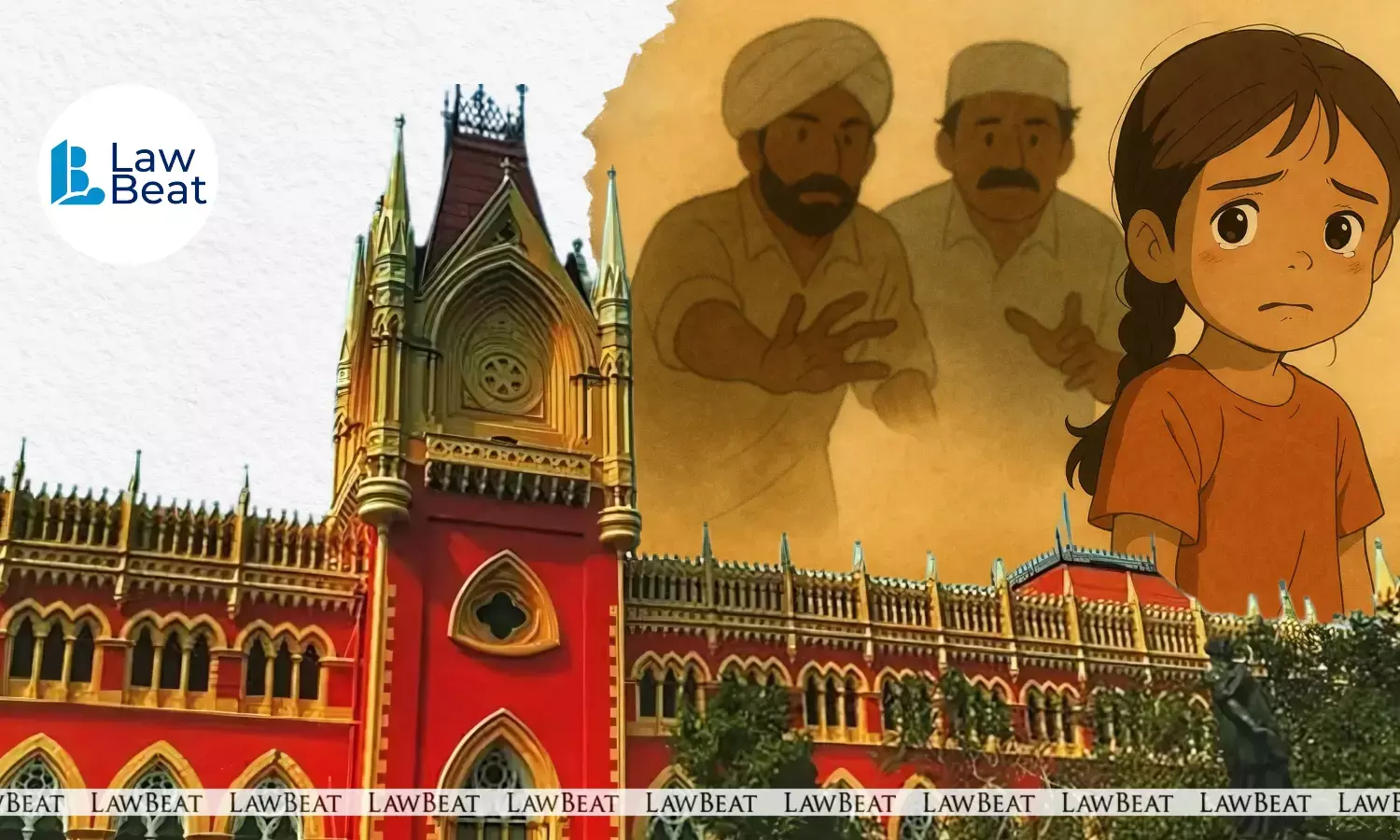Calcutta HC Commutes Death Penalty, Sentences Child’s Rapists to 60 Years

In the case of abduction, gang rape, and murder of a 5-year-old girl in West Bengal, the Calcutta High Court on July 23, 2025, upheld the conviction of two men but commuted their death sentences to life imprisonment without the possibility of remission for 60 years.
A division bench of Justices Debangsu Basak and Md. Shabbar Rashidi delivered the verdict while deciding a death reference and criminal appeal against the June 2023 judgment of a trial court in Jhargram, which had sentenced the two men, Fagun Mandi @ Pui and another, to death.
On November 7, 2021, the minor went missing from her home. Witnesses confirmed that she was last seen in the company of Fagun Mandi @ Pui (Appellant No. 1), who purchased biscuits and tobacco before heading toward the fields with the child. Her body was later found in a canal area within a paddy field, a recovery made on the disclosure statements of both men. The prosecution established Appellant No. 2's involvement through circumstantial evidence, including the recovery of a locket bearing the victim's photo from his house and his role in helping police locate the victim’s body.
The post-mortem report confirmed that the child had been subjected to aggravated penetrative sexual assault, including injuries caused by the insertion of a bamboo stick in her private parts, and that she was ultimately strangled. Eyewitnesses, including the victim’s relatives and neighbours, corroborated the timeline and movements of the accused leading up to the girl’s disappearance. Several prosecution witnesses testified that the dead body and related items, including a chocolate wrapper and burnt biri stub, were recovered on the appellants’ showing.
However, the defence argued that the prosecution relied solely on circumstantial evidence, raised questions about inconsistencies in the recovery site, and pointed out procedural lapses and inadmissibility of certain evidence. It also highlighted the poor socio-economic background, limited education, and mental health issues of the appellants, arguing against the imposition of capital punishment.
While upholding the conviction, the high court found that the appellants failed to offer any explanation for their presence with the victim or for the incriminating articles found in their possession.
Court, however, invoked the Supreme Court’s judgment in Manoj & Others v. State of Madhya Pradesh, which laid down that the death penalty must only be imposed when the possibility of reformation is unquestionably foreclosed. It noted that both appellants had no criminal antecedents, came from extremely poor and backward backgrounds, and had shown positive conduct in custody. It also noted that it could not reach at a conclusive finding that, possibility of reformation of both the appellants stood foreclosed. Therefore, it held, "We are not minded to confirm the death penalty imposed by the learned trial judge, on the appellants".
However, court said, "These conducts of the appellants demonstrate a quality of depravity which shocks the conscience. (So) Balance has to be struck between the gravity of the offence and the quantum of punishment to be imposed," holding that a simple life sentence would be insufficient.
Accordingly, court commuted the death sentence to imprisonment for life without the possibility of remission for a period of 60 years from the date of the offence. It directed correctional authorities to update their records and consider the period already undergone in custody as part of the sentence.
Case Title: The State of West Bengal Vs. Fagun Mandi @ Pui and Another
Judgment Date: July 23, 2025
Bench: Justices Debangsu Basak and Md. Shabbar Rashidi
